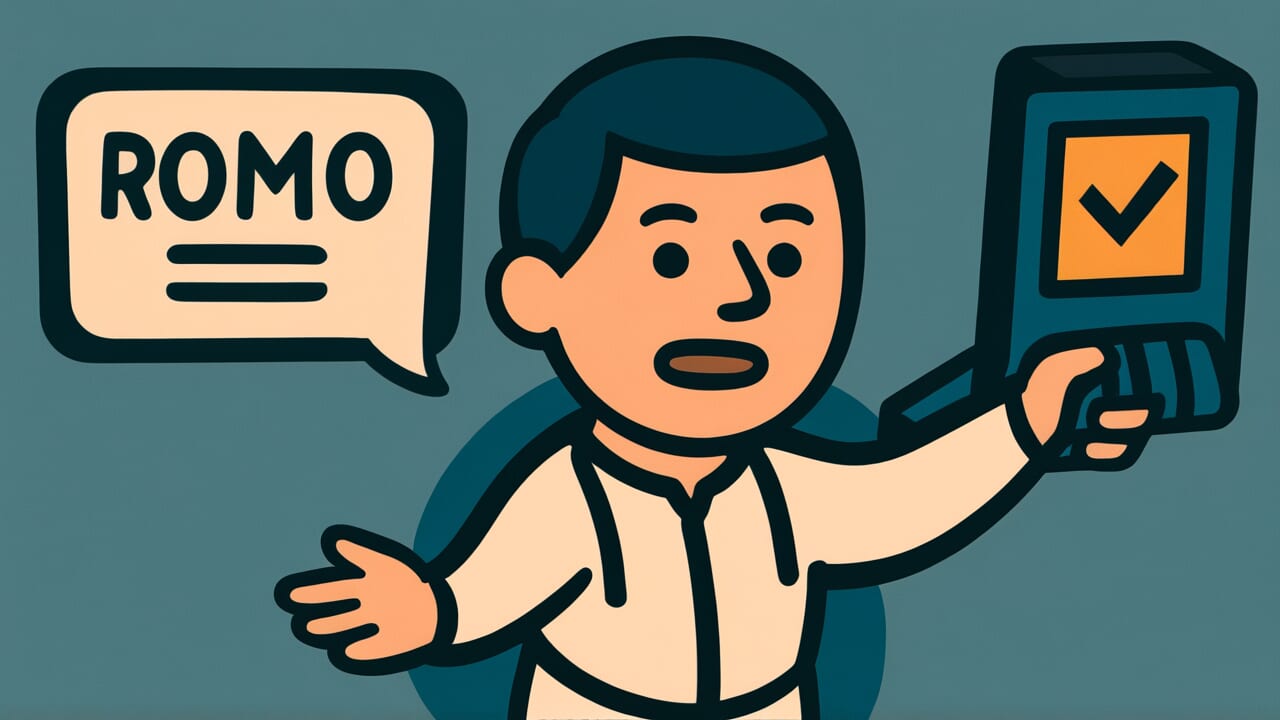How to Read “A message doesn’t become a burden”
Kotozute wa ni ni naranu
Meaning of “A message doesn’t become a burden”
“A message doesn’t become a burden” means that passing along words or messages carries no physical weight. When someone asks you to deliver a message, it’s different from carrying luggage. It requires no physical strength or effort.
This proverb is used when asking someone to pass along a message or when accepting such a request. It expresses the feeling that “I can easily take on a simple message.”
It also reassures the person asking that “you don’t need to hesitate about requesting a message.”
Even today, with phones and email everywhere, we can appreciate the lightness of delivering messages in person. Unlike digital messages, verbal messages carry human warmth.
They truly are a pleasant form of communication that carries no “weight.”
Origin and Etymology
The exact first appearance of this proverb in literature is hard to pinpoint. However, it was widely used among common people during the Edo period.
Looking at the words themselves, “kotozute” means a verbal message or word passed along. “Ni” refers to physical cargo or heavy loads.
The background of this expression is deeply connected to transportation in the Edo period. Back then, people traveled mainly on foot.
Carrying luggage over long distances was hard physical labor. The golden rule of travel was to keep your load as light as possible.
In that era, when someone asked you to “tell this to that person,” it was completely different from being asked to carry something. It was a kindness that caused no burden at all.
The historical context of limited literacy is also important. Writing a letter required paper and ink, which cost money. But passing along a spoken message required no expense or effort.
When travelers accepted messages to deliver, it served as a valuable means of communication. This was a socially important act.
From this practical wisdom of daily life, this proverb naturally emerged.
Usage Examples
- If you’re stopping by the branch office on your business trip, a message doesn’t become a burden, so could you pass along the manager’s message?
- If you’re going that way anyway, a message doesn’t become a burden, so can I ask you to give my mother a message?
Universal Wisdom
The proverb “A message doesn’t become a burden” contains the essence of mutual help in human society. Why has this saying been passed down for so long?
It’s because people instinctively have both feelings: “I don’t want to burden others” and “I want to be helpful.”
When people ask someone for a favor, they fear causing inconvenience. This feeling may be especially strong among Japanese people. But at the same time, humans are creatures who feel joy in being useful to others.
This proverb beautifully harmonizes both of these psychological states.
The expression “doesn’t become a burden” states a physical fact. But it also offers psychological reassurance.
The person asking thinks “I can request this easily.” The person accepting thinks “I’m happy to do this much.” This delicate balance has smoothed human connections throughout history.
Our ancestors knew that communication itself enriches human relationships. Entrusting someone with a message isn’t just information transfer. It’s a thread connecting people.
Precisely because words have no weight, they can travel far and connect many hearts. This deep understanding of human nature is condensed into these simple words.
When AI Hears This
When we transport physical cargo, we always pay a cost. Carrying 10 kilograms of rice 100 meters makes the human body consume about 50 kilocalories of energy.
Moreover, after carrying it, the rice disappears from your hands and passes to someone else’s. This is the fate of matter.
But messages—information—are completely free from this physical law.
Claude Shannon, founder of information theory, defined the essence of information as “reduction of uncertainty.” What’s important is that information doesn’t decrease no matter how many times you copy it.
If I tell 10 people “it will rain tomorrow,” the information inside me doesn’t disappear. With matter, dividing it among 10 people gives each person one-tenth.
But with information, all 10 people receive 100 percent. This is called “non-excludability.”
Even more amazing is that the transportation cost of information has zero mass. The theoretical minimum energy needed to transmit one bit of information is an extremely small value proportional to temperature.
At room temperature, it’s about 0.00000000000000000000003 joules. The difference from the cost of carrying a rice bale is astronomical.
What this proverb recognized was two revolutionary properties of information: “infinite replicability” and “zero-mass transmission.” In the modern age, where we send data worldwide via the Internet, we live in the world this ancient wisdom predicted.
Lessons for Today
What this proverb teaches you today is “the value of light communication.” In modern society, email and messaging apps dominate. Everything remains as a record.
But precisely because of this, the lightness of verbal messages becomes precious.
When someone asks you to “pass this along,” it’s a sign of trust. Being asked to deliver words through you gives you a real sense of being part of human connections.
Deliberately using a person to convey what could be done digitally—there’s a warmth in that which can’t be measured by efficiency alone.
This proverb also teaches the importance of “not hesitating to do small kindnesses.” The accumulation of small acts you think “I can do this much” nurtures rich human relationships.
Even if you can’t carry heavy luggage, you can carry words. Thinking this way, everyone has the potential to help someone.
Playing a role that connects people, within a range that doesn’t burden you—this should make your daily life a little richer.



Comments